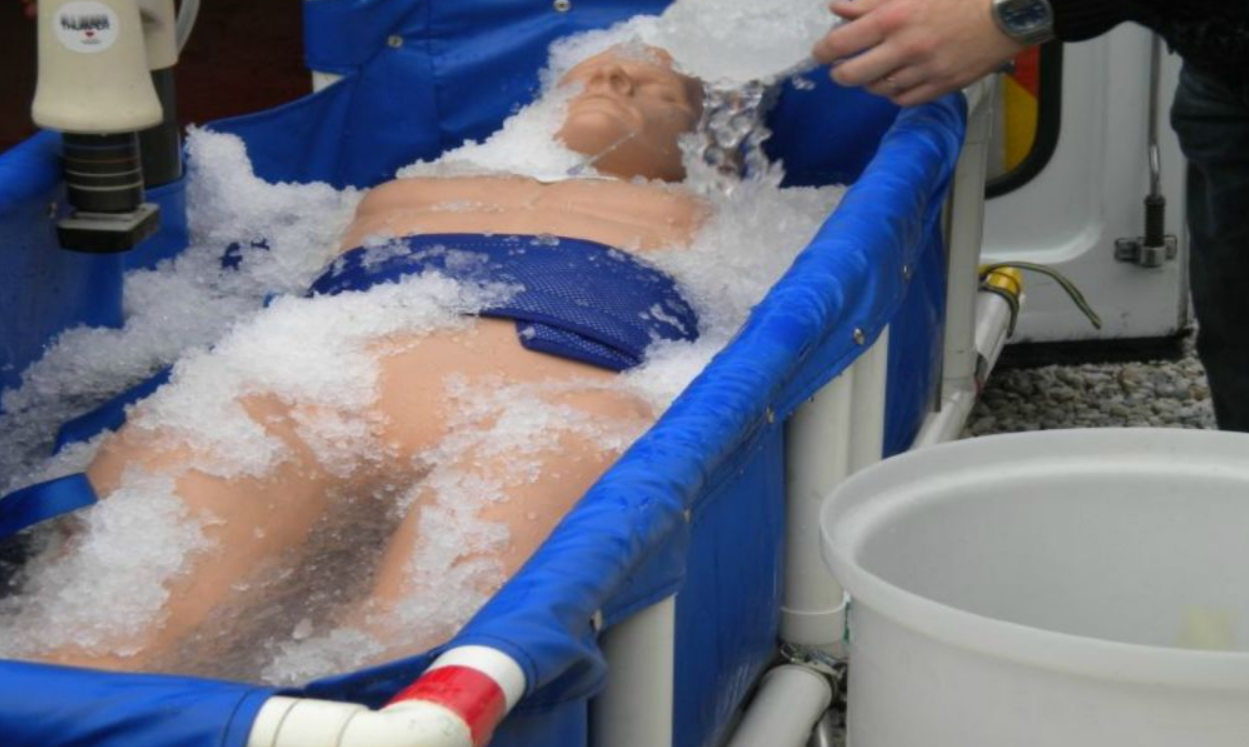Picture this: your rent is sky-high, your phone updates every other week and your expenses are growing. One day you wake up and say to yourself it is time you skip all this crisis but how?
Table of Contents
Then you decide to cryogenically freeze, hoping to wake up in a smarter, quieter future. But as you’re about to sign the freezing contract, a curious thought hits you again—do I still have to pay taxes while I’m frozen?
Well, we will explain in detail the legal and tax implications of cryogenic preservation, diving into global laws, and landmark legal proceedings to unravel whether a frozen taxpayer remains on the hook in this icy limbo.
Legal Status of a Cryogenically Frozen Person
To figure out tax obligations, we first need to establish the legal status of a cryogenically frozen individual. Are they considered legally alive, dead or something else? The answer differs by jurisdiction, and no global consensus exists due to the novelty of cryonics.
In most legal systems, death is defined as the permanent stopping of vital functions such as those of the heart or brain. However, cryonic preservations happen just after clinical death, aiming to preserve the body for possible future revival. This puts it in a legal grey area.
According to a 2015 analysis by the Journal of Law and Biosciences, cryonics challenges the usual definition of death, since it assumes death might one day be reversible. But still, no country currently recognises cryonically preserved person as legally alive.
- United States: The Uniform Determination of Death Act (UDDA) explains death as either the irreversible stoppage of circulatory and respiratory functions or all brain functions, meaning people who are cryogenically preserved are generally declared legally dead. For example, in the 1990 case Alcor Life Extension Foundation v. Mitchell, the court ruled that cryonic preservation does not mean someone is legally alive.
- European Union: Similarly, European countries also define death in a similar way—as the stopping of brain or heart functions. In France, for example, the law uses these criteria. In a 1996 case (Re Cryonics Europe), a court ruled that a cryonically frozen person is legally dead and has no ongoing legal responsibilities. Tax agencies, like France’s tax authority, also treat these individuals as deceased for tax purposes.
- Other Countries: In other countries like China and Russia, where cryonics companies like KrioRus exist, frozen individuals are also considered legally dead. There are no legal rulings anywhere in the world that recognize them as alive, so their tax obligations are put on hold.
Tax Obligations While Frozen
Since cryonically preserved individuals are recognized dead legally in most places, they usually no longer owe personal income taxes. However, some tax issues still apply:
Estate and Inheritance Taxes
Depending on the country, when someone pass way, their estate may owe taxes:
- In the United States of America, the IRS charges estate tax on estates worth over $13.6 million (2025 limit). But, the cost of cryonic preservation, often paid through trusts or life insurance, may be taxed as part of the estate.
- In the United Kingdom, an inheritance tax of 40% applies to estates worth over £325,000. Like the Re Estate of J.S. case of 2018 case confirmed that money set aside for cryonics counts as part of the estate and is taxable.
Trusts and Ongoing Tax Issues
Cryonics is often funded through trusts, which can have tax consequences:
- In the U.S., when someone passes away, their revocable trust becomes irrevocable. Meaning any income the trust earns, like investment returns for example, is taxed. The IRS requires these trusts to file tax returns (Form 1041).
- In Germany, the trust of the individual used for cryonics may face gift or inheritance taxes. In 2020 a German court ruling confirmed this for post-death asset transfer.
Corporate Taxes for Cryonics Companies
Cryonic facilities such as Alcor or KriRus are taxable entities. The fees they charge for preservation and storage are subject to corporate income tax in their respective countries. However, this doesn’t affect the frozen person, since they are not personally responsible.
Global Perspectives and Legal Precedents
No country has laws that directly address the tax status of cryonically preserved individuals. However, some legal cases give useful clues:
- United States of America: In the 1980 case Donaldson v. Commissioner, the U.S. tax court said that money placed into a cryonics trust could only be tax-deductible if given to a charity. Since most cryonics groups aren’t charities, the IRS sees cryonics as a personal expense, not a public benefit.
- Russia: KrioRus, a leading cryonics provider, follows Russian law, which treats preserved individuals as legally dead—so they don’t pay personal taxes. However, KrioRus itself must pay tax on the fees it earns for storage.
- Australia: The Australian Taxation Office hasn’t made formal rules on cryonics. But, in a 2019 case (Re Southern Cryonics), it was confirmed that frozen individuals are legally dead and don’t owe taxes. However, any trusts used to fund cryonics still have to follow normal tax rules.
What If Revival Happens?
If someone is brought back to life through cryonics, would they owe back taxes? There are no clear laws since this is still science fiction.
A 2021 article in the Yale Law Journal argues that revival would likely be seen as starting a new legal identity, because the person was previously declared dead. That means their old tax status would end, and they wouldn’t owe taxes for the time they were preserved.
New laws would likely be needed to handle such cases, but for now, a revived person would probably be treated like a new taxpayer.
Practical Considerations
To minimize tax complications, cryonics organizations like Alcor recommend:
• Prepaying storage fees to avoid ongoing trust income tax.
• Consulting tax professionals to ensure compliance with local laws.
• Establishing irrevocable trusts to fund preservation, reducing estate tax exposure.
FAQs
1. Do I have to pay personal income taxes while frozen?
Ans: No, your income tax obligations end once you are legally declared dead at the time of preservation.
2. How can I reduce tax issues related to cryonics?
Ans: Seek tax expert advice. Because you might use prepaid fees and irrevocable trusts and make sure your plan follows local law.
3. Will my estate owe taxes after I’m cryonically frozen?
Ans: Yes, depending on where you live.
Conclusion
Based on the explanation given above, if you choose to be cryogenically frozen, you probably won’t owe personal income taxes while frozen, since you are legally recognized as dead in most countries.
Depending on the laws in your country, still your estate or trust could still face taxes. Since cryonics is new, tax laws are not clearly defined it creates a lot of uncertainty. If you are planning on doing it, it’s wise to get advice from legal and tax experts ’and also refer to trusted sources like IRS or HMRC guidelines.

















